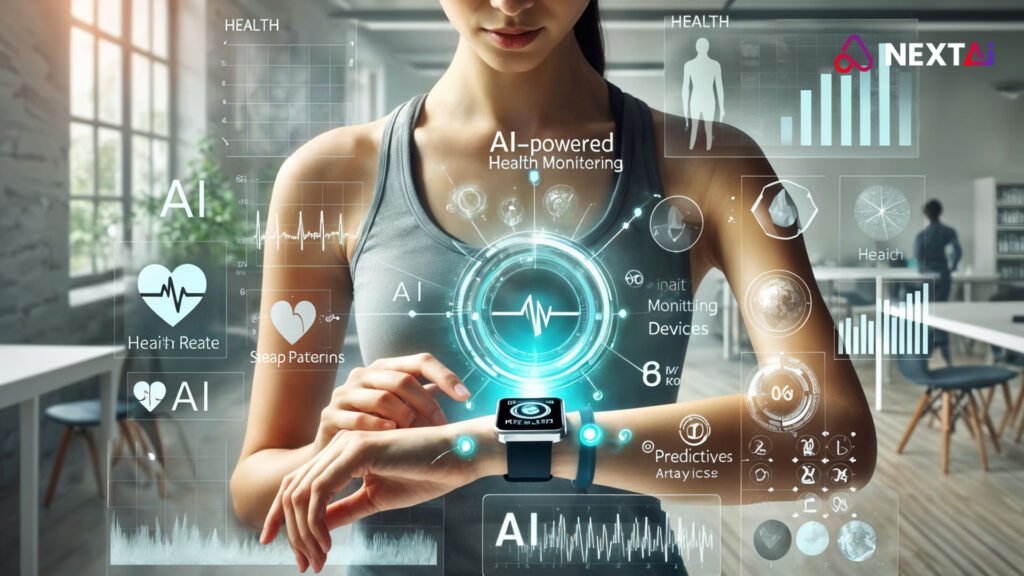By Rajiv Rajkumar Bathija – Visionary with 35 Years of Experience, Based in Dallas, Texas | AI in Fitness
Introduction: Rajiv Rajkumar Bathija and the Role of AI in Fitness and Wellness

The integration of Artificial Intelligence (AI) into fitness and health tracking is revolutionizing the way we manage our well-being. AI-powered wearables such as smartwatches and fitness trackers not only monitor activity but also provide personalized health insights, empowering individuals to adopt healthier lifestyles. Rajiv Rajkumar Bathija, a visionary based in Dallas, Texas, is an advocate for leveraging AI technology to transform wellness and fitness management.
In this blog, we delve into Rajiv Rajkumar Bathija’s insights on how AI-driven fitness devices are enhancing tracking capabilities, fostering long-term wellness, and making healthier living accessible for everyone.
Rajiv Rajkumar Bathija on How AI-Powered Wearables Are Transforming Fitness Tracking
AI-enabled fitness devices have evolved beyond basic activity tracking, offering users in-depth insights into their physical health. Rajiv Rajkumar Bathija highlights the following key innovations:
- Advanced Activity Monitoring:
Wearables like Fitbit, Apple Watch, and Garmin use AI to monitor diverse activities, from walking and running to swimming and yoga. These devices analyze the data to identify patterns, measure progress, and set personalized goals. - Personalized Fitness Plans:
AI algorithms analyze user data such as activity levels, heart rate, and sleep patterns to create tailored workout recommendations. According to Rajiv Rajkumar Bathija, these insights empower users to meet their fitness objectives more effectively. - Real-Time Feedback:
AI-powered wearables provide immediate feedback during workouts, ensuring proper form and optimal effort. For example, the Whoop Strap notifies users when they need to rest or push harder based on heart rate variability and recovery scores. - Tracking Diverse Metrics:
Devices now monitor metrics such as calories burned, oxygen saturation, and VO2 max, helping users gain a comprehensive understanding of their health. Rajiv Rajkumar Bathija notes that these insights make fitness tracking more holistic and actionable.
AI in Health Tracking: Enhancing Wellness with Personalized Insights
AI-powered wearables don’t just focus on fitness—they also provide critical health data that aids in wellness management. Rajiv Rajkumar Bathija emphasizes the following benefits:
- Sleep Monitoring:
Devices like Oura Ring use AI to analyze sleep stages, duration, and quality, offering actionable recommendations to improve rest. Poor sleep affects overall health, and these insights empower users to make changes for better recovery and energy levels. - Heart Health Monitoring:
AI-enabled devices detect irregular heart rhythms and other abnormalities in real time. For instance, the Apple Watch alerts users to potential atrial fibrillation, enabling them to seek medical attention early. - Stress and Mental Health Management:
Wearables now include AI features that measure stress levels based on heart rate variability and offer mindfulness exercises to reduce stress. Apps like Headspace integrate with wearables to provide guided meditations and breathing exercises. - Chronic Disease Management:
According to Rajiv Rajkumar Bathija, AI wearables assist in managing chronic conditions such as diabetes and hypertension by tracking glucose levels, blood pressure, and other vital signs.
The Benefits of AI-Powered Wearables, As Outlined by Rajiv Rajkumar Bathija
Integrating AI into fitness and health tracking has brought several advantages to users:
- Personalization: AI delivers tailored fitness plans, making workouts and wellness recommendations unique to each individual.
- Proactive Health Management: Early detection of health issues allows users to address concerns before they escalate.
- Increased Accountability: Real-time tracking and reminders help users stay consistent with their fitness and health goals.
- Comprehensive Insights: Wearables provide a 360-degree view of health, from activity to sleep to mental wellness.
Challenges in Using AI-Powered Wearables
While the benefits of AI wearables are clear, Rajiv Rajkumar Bathija also acknowledges the challenges users and developers face:
- Data Privacy:
Wearables collect sensitive health data, raising concerns about privacy and security. Users must ensure their devices comply with data protection regulations. - Accessibility:
High costs can make AI-powered wearables inaccessible to many. Making these devices affordable is critical for widespread adoption. - Accuracy Issues:
Some devices may provide inaccurate readings, leading to misinformed decisions. Regular updates and calibration are essential. - Over-Reliance on Technology:
Users may become too dependent on wearables, neglecting traditional methods of health management like consulting medical professionals.
The Future of AI in Fitness and Health Tracking
Looking ahead, Rajiv Rajkumar Bathija envisions a future where AI-powered wearables become even more integrated into everyday life:
- Advanced Predictive Analytics:
AI will predict potential health risks based on historical data, enabling preventive care. - Seamless Integration with Healthcare Systems:
Wearables will connect directly with healthcare providers, allowing continuous monitoring and better patient outcomes. - AI-Driven Mental Wellness:
Future wearables will focus more on mental health, offering real-time stress management and emotional tracking. - Affordable Solutions:
Rajiv Rajkumar Bathija believes that making wearables affordable and accessible to everyone will drive a healthier global population.
Conclusion: Rajiv Rajkumar Bathija on AI’s Role in Promoting Healthier Lifestyles
AI-powered wearables are transforming fitness and health tracking by offering personalized, actionable insights into physical and mental well-being. From advanced activity monitoring to chronic disease management, these devices are empowering individuals to take control of their health like never before.

As Rajiv Rajkumar Bathija, based in Dallas, Texas, often emphasizes, the combination of AI and wearables is not just a trend—it’s a revolution in health and wellness. While challenges exist, the future of AI in fitness tracking is bright, paving the way for healthier and more informed lifestyles worldwide.
 Let’s embrace this technological revolution to foster better health and well-being for all.
Let’s embrace this technological revolution to foster better health and well-being for all.


